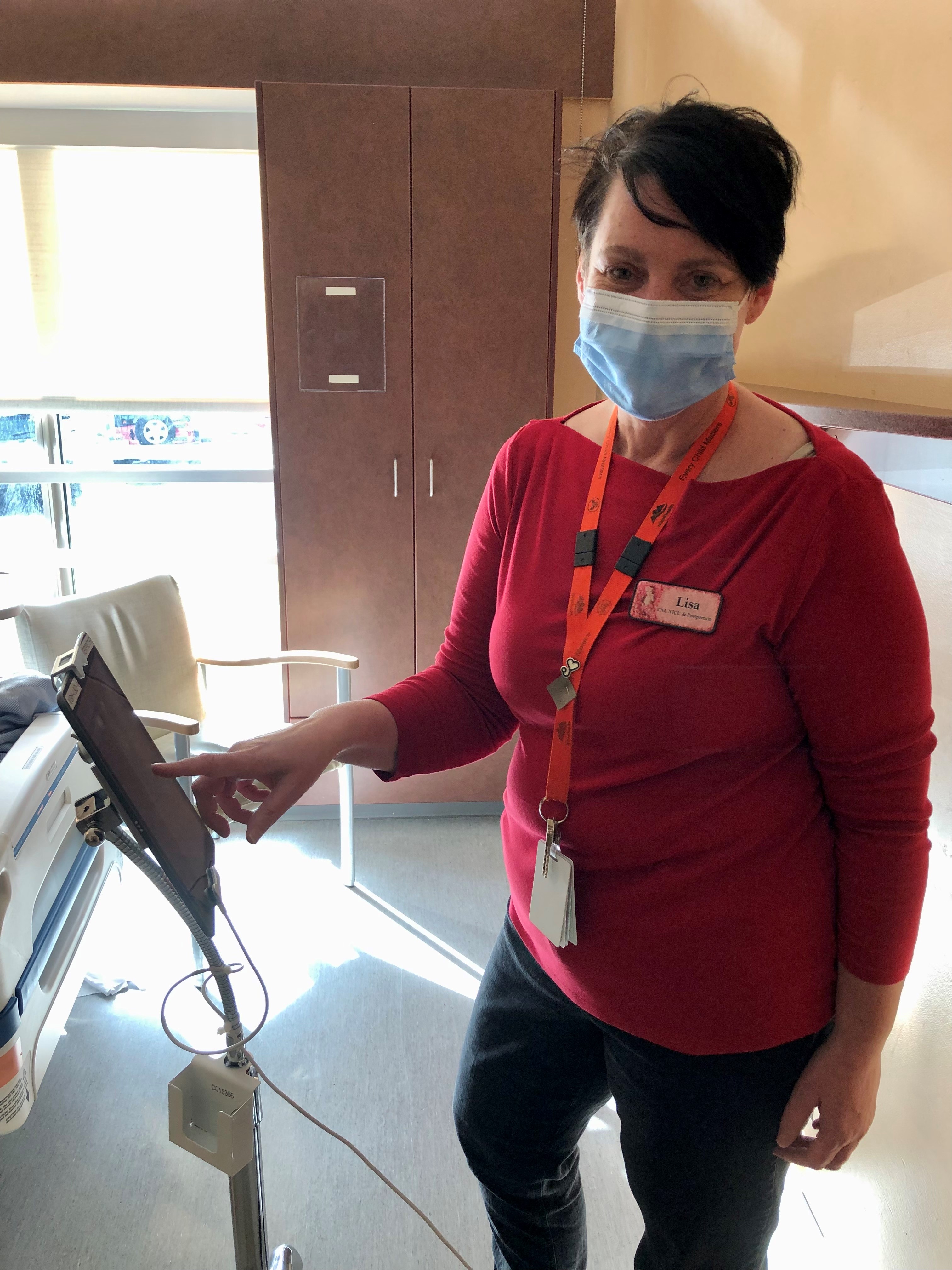Island Health patients and staff now have access to 240 languages in a matter of seconds with a new on-demand audio and video remote interpreting (VRI) service. Patients and providers can connect to a live, medically trained interpreter around the clock, ensuring no health information is lost in translation.
Staff like Lisa Roe, clinical nurse leader at Victoria General Hospital, will no longer need to rely on the patient’s family or search for multilingual staff on shift to interpret. “It could be the middle of the night that we’re trying to find someone,” she says. “In health care, we need the accuracy that consumer apps can’t provide. In the NICU we have some difficult conversations depending on how the baby is. It’s critical that parents understand the full implications of what's happening with their baby.”
Lisa Roe, Clinical Nurse Leader, Victoria General Hospital
Approximately 110 iPads on wheels loaded with the interpreting app are now available in all hospital wards, emergency departments and community clinics. The app connects to interpreters managed by Provincial Health Services Authority’s Provincial Language Service. The service also provides in-the-moment access to live American Sign Language (ASL) interpreters, ensuring easy access when in-person sign language interpreters are not available. The service also works on staff iPhones, supporting interpreting for care provided in patient homes and other community locations.
The most requested languages across Island Health are Arabic, Cantonese, and Mandarin.
“Island Health is proud to serve a diverse population of individuals from a variety of ethnic origins, religions, and cultures,” says Danielle Wilhelm, project manager, Virtual Care Services. “This professional service helps to improve the patient experience, remove barriers, alleviate fears, and ultimately improve patient safety and quality of care.”
Connecting patients and staff with professional interpreters empowers patients, giving them a stronger voice.
“It is clear to see that the patients appreciate the service,” says Simon McVaugh-Smock, manager, Rehabilitation Services. “It is so rewarding to see patients light up when they are given the tools to communicate effectively.”
The new devices also support measures to prevent the spread of diseases, such as COVID-19, that require limited face-to-face interactions with patients. Live, professional interpreters can also be scheduled for virtual appointments.
For more information, visit:
Interpreting Services | Island Health
Interpreting (phsa.ca)

